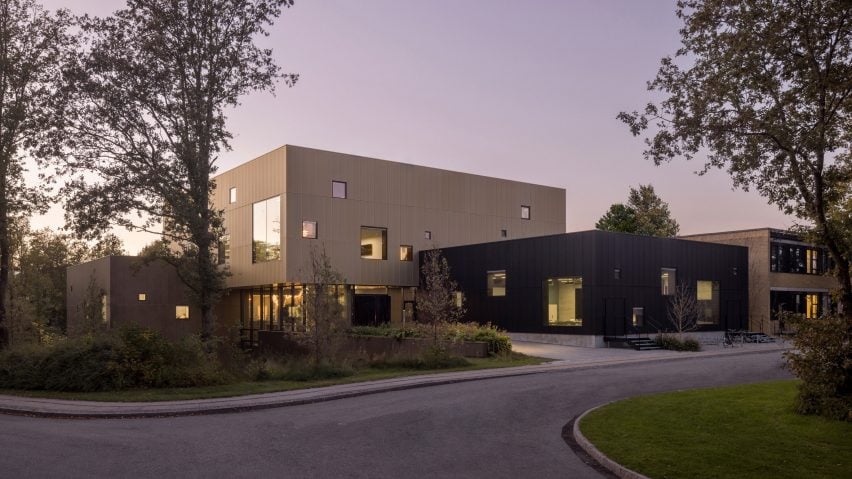
Rørbæk og Møller Arkitekter clads Danish university extension in gold-toned metal
Copenhagen studio Rørbæk og Møller Arkitekter has extended Skylab at the Danish Technological University with a cluster of gold blocks arranged around a skylit workshop.
Located on the university's Linburg campus, the centre provides an additional 3,000 square metres for Skylab – a research and innovation hub for woodwork, metalwork, 3D printing and robotics.
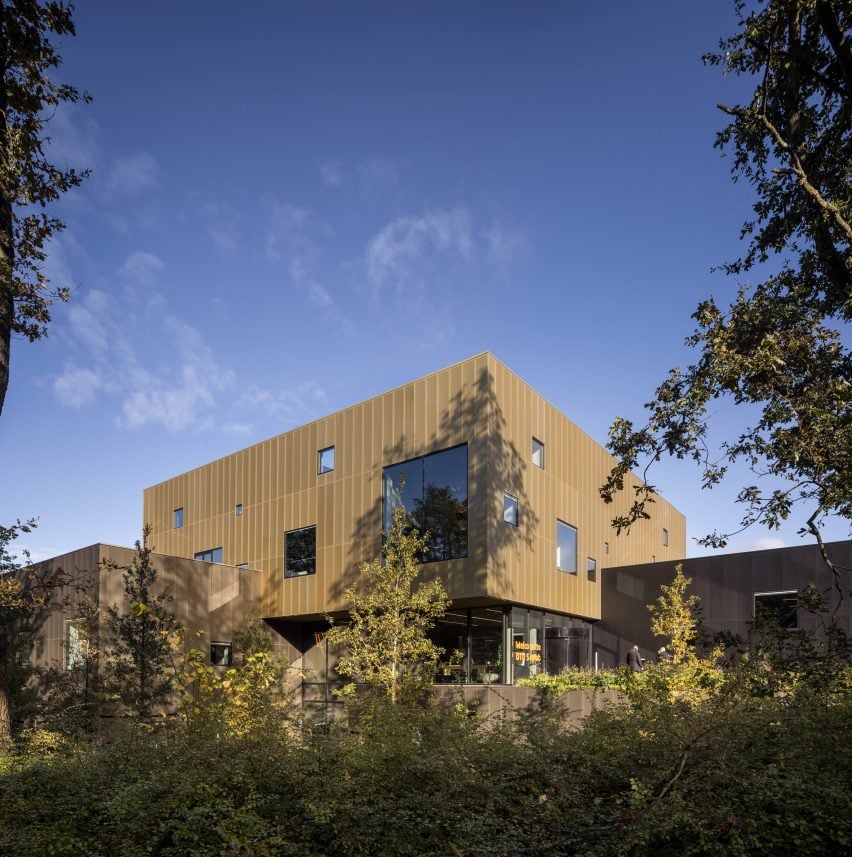
Taking cues from the centre's existing warehouse-like form, Rørbæk og Møller Arkitekter created a series of interconnecting, block-like forms, each clad in gold- and bronze-coloured panels of perforated metal.
These blocks are organised around the full-height, skylit workshop, or "developer hall", at the heart of the centre, with workspaces that overlook the tree-filled campus through large windows.
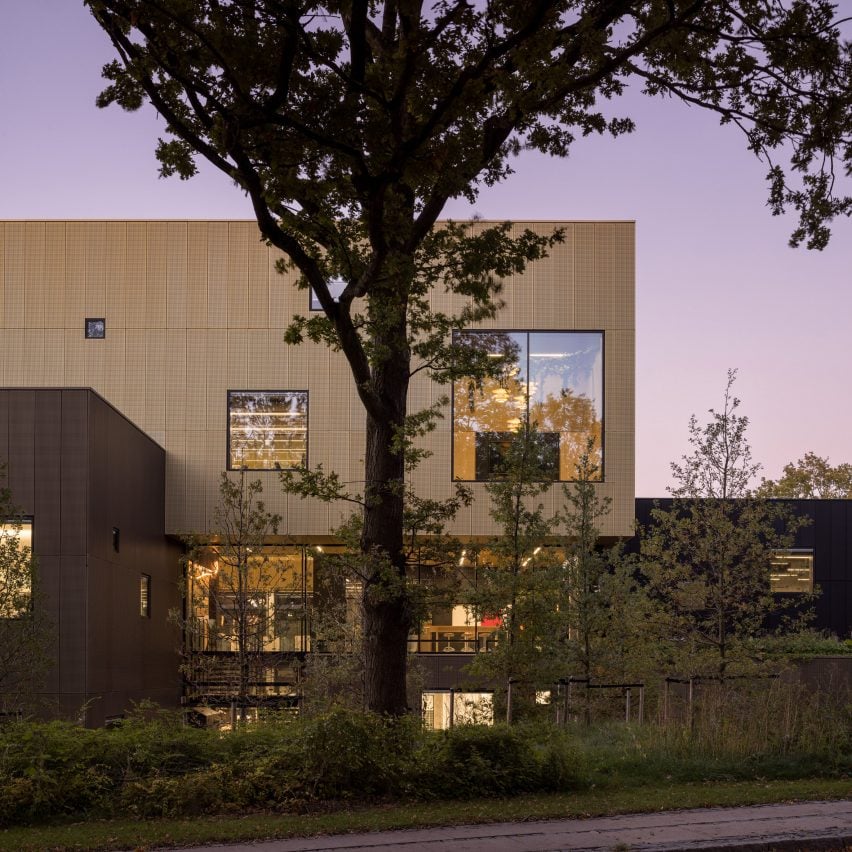
"The new Skylab, with its elegant and playful composition of golden boxes harmoniously stacked, organises itself in a lively and flexible manner," explained the studio.
"It offers adaptable spaces for various activities and functions on the users' terms," it continued.
"As soon as one enters the 'developer hall', the vibrant community of researchers, students, and entrepreneurs is evident, all engaged in developing inventions from vegetable-harvesting robots to wind-to-energy kites."
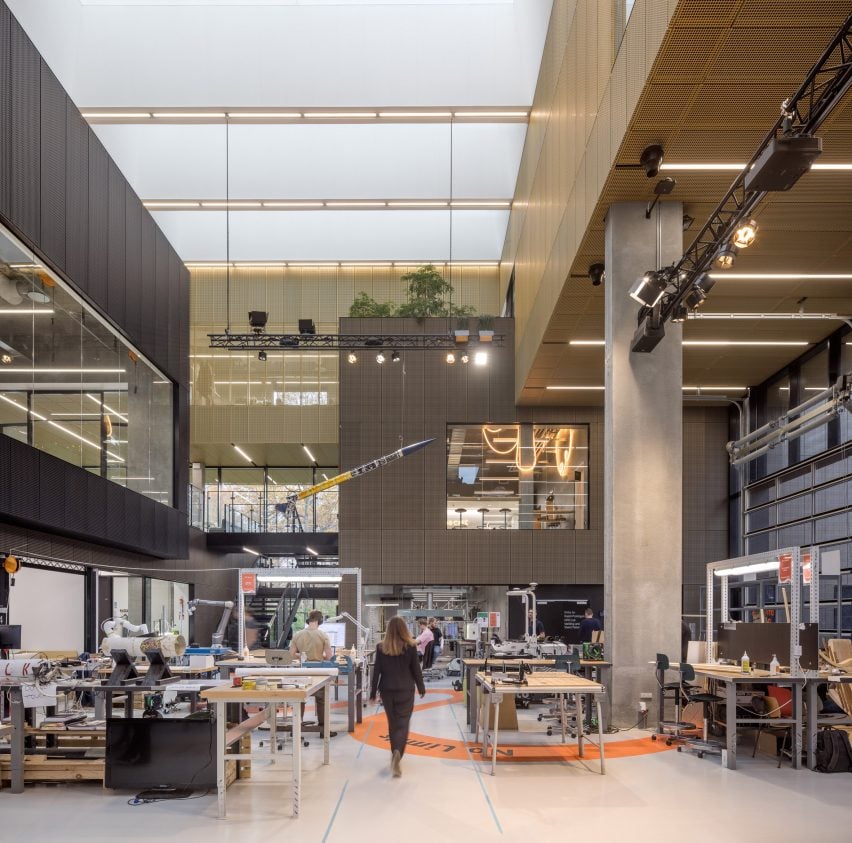
Organised around the central developer hall is an events space to the east, a material store and 3D printing facilities to the south, and workshops and a machine shop for welding and woodworking to the west.
To the north, a lab for food research sits on the opposite side of a small courtyard, which can be accessed via an independent external staircase.
The distinct blocks that make up Skylab are slightly overlapped in plan, with each projecting into the central hall with large windows and terraces that create visual links throughout.
"The idea is to build minimal space with an optimal layout, eliminating waste and redundant corridors," explained Rørbæk og Møller Arkitekter.
"The building's compact structure enhances sustainability through reduced heat loss and optimal daylight anatomy, allowing for closer collaboration and cross-pollination of projects," it added.
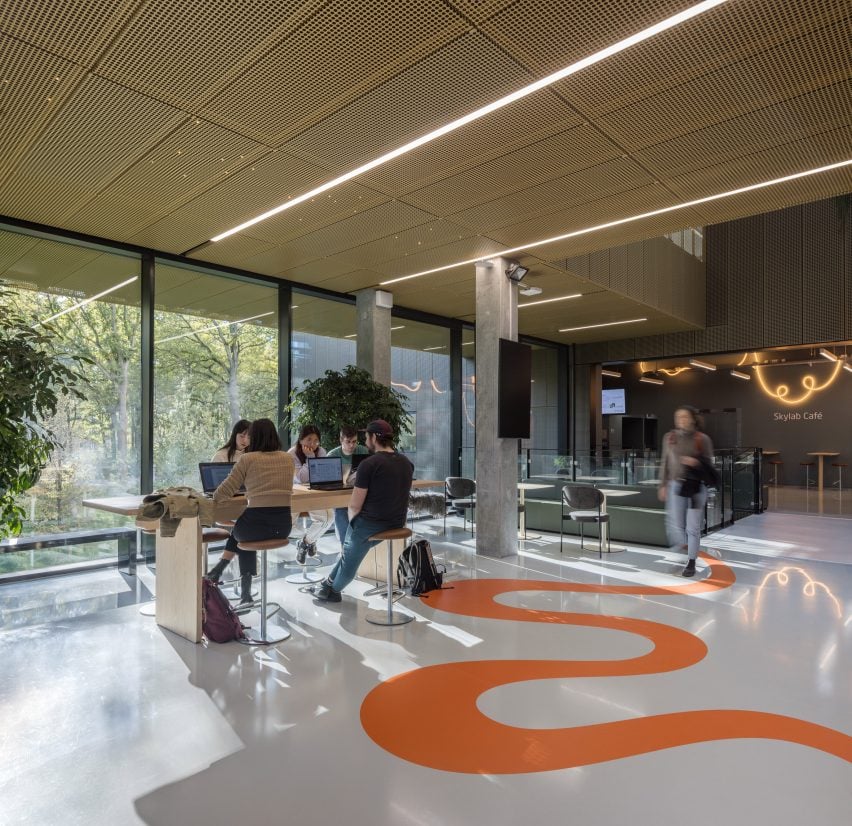
Inside, the spaces have deliberately simple finishes, with exposed ducting and easily adjustable lighting trusses, timber panels and areas of exposed concrete.
"The building's durable materials and easy-to-clean surfaces make for efficient operation and minimal maintenance," explained the studio. "This focus on long-term economics ensures that energy and resources are channelled into research and entrepreneurship, not building maintenance."
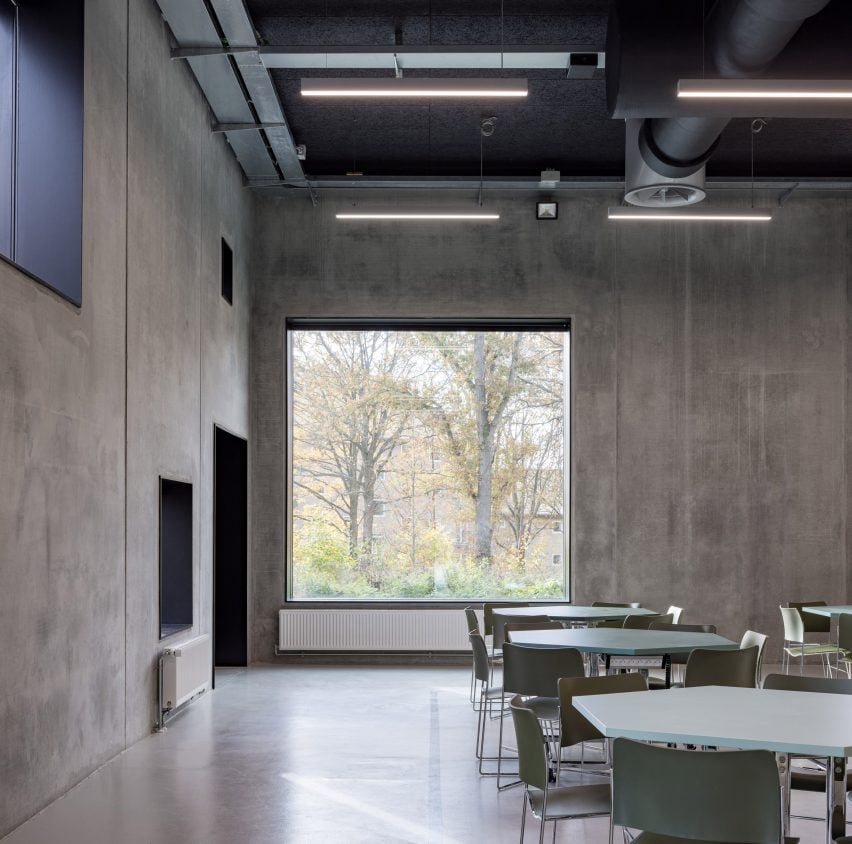
Elsewhere in Denmark, Rørbæk og Møller Arkitekter recently completed a curved concrete church in Roskilde, combining a contemporary form with the traditional elements of church design.
Other university buildings recently featured on Dezeen include the treehouse-like Student Pavilion at the University of Melbourne by KoningEizenberg and Witherford Watson Mann Architects adds the timber River Wing extension to a Cambridge college by Witherford Watson Mann.
The photography is by Adam Mork.